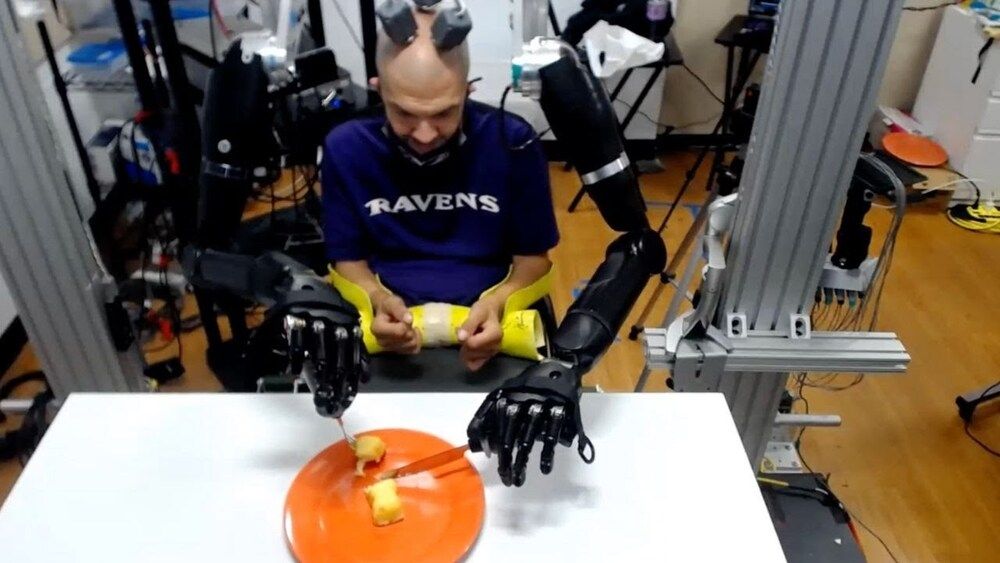https://youtube.com/watch?v=x615GSqicZE
Nearly two years ago, Chmielewski underwent a 10-hour brain surgery at the Johns Hopkins Hospital in Baltimore as part of a clinical trial originally spearheaded by the Defense Advanced Research Projects Agency and leveraging advanced prosthetic limbs developed by the Johns Hopkins Applied Physics Laboratory. Its goal was to allow participants to control [assistive devices](https://medicalxpress.com/tags/assistive+devices/), and enable perception of physical stimuli (touching the limbs) using neurosignals from the brain. Surgeons implanted six electrode arrays into both sides of his brain, and within months he was able to demonstrate, for the first time, simultaneous control of two of the [prosthetic limbs](https://medicalxpress.com/tags/prosthetic+limbs/) through a brain-machine interface developed by APL.
For more than 30 years—following an accident in his teens—Robert “Buz” Chmielewski has been a quadriplegic with minimal movement and feeling in his hands and fingers. But last month he was able to manipulate two prosthetic arms with his brain and feed himself dessert.
Buz’s accomplishment marks a big step toward restoring function and autonomy for patients affected by an illness or injury that results in the partial or total loss of use of all four limbs and torso.
“It’s pretty cool,” said Chmielewski, whose sense of accomplishment was unmistakable after using his thoughts to command the robotic limbs to cut and feed him a piece of golden sponge cake. “I wanted to be able to do more of it,” he said.
